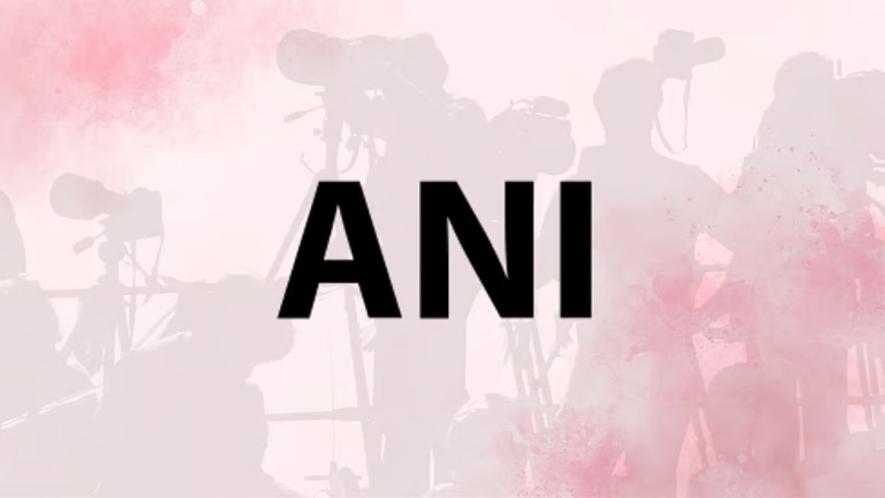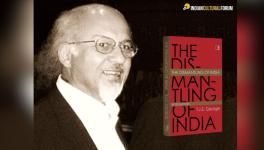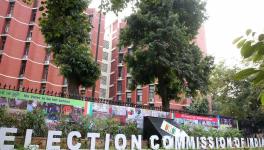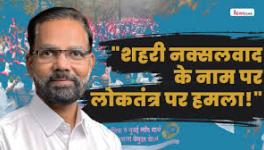ANI’s De Facto Monopoly is Both Constitutionally Impermissible and Dangerous to Democracy

Videos from the recent all party delegation to different countries on the India-Pakistan conflict had one thing in common - Asian News Agency’s (‘ANI’) logo. So a question naturally arises – can one news agency (ANI), which is a private company (unlike some others such as Press Trust of India (‘PTI’), which is a Trust), exercise a de facto monopoly in covering government related official news?
Why were the other news agencies such as PTI, Indo-Asian News Service (‘IANS’), Press Information Bureau (‘PIB’), or United News India (‘UNI’)absent from the whole scene? Were they not invited by the Government of India to go with the official delegation? Or were they invited but asked to pay for themselves but they simply did not have the funds to cover the same?
Further, if the Government of India did not ‘invite’ anyone, and ANI went on its own, just because it had the ‘resources’ to do so, is it okay to allow one agency to disrupt the level playing field?
Most importantly, why is the state owned public broadcaster – Doordarshan, which is funded by public money, being ignored? Surely, the Indian government can at least fund a team of journalists to accompany the official delegation?
These questions are not limited to the coverage of the recent official all party delegation. They are fundamental to understanding the undue advantage that ANI seems to be getting, at the cost of all others.
So a question naturally arises – can one news agency (ANI), which is a private company (unlike some others such as Press Trust of India (‘PTI’), which is a Trust), exercise a de facto monopoly in covering government related official news?
In essence the problem is this - having just one news agency, exclusively covering all or any government related official event/stance is both constitutionally impermissible and dangerous to democracy.
This ‘exclusivity’ may not arise from any obvious contract between the Government of India and ANI, but the government doing nothing to promote a level playing field, to broadcast ‘official government related functions’ is akin to giving rise to an effective monopoly albeit indirectly.
ANI works for ‘profit’, and sells the information forward to other news agencies, media, users etc. for a ‘fee’. So unlike PIB, or Doordarshan it is not government owned. ANI will and does claim ‘ownership’ over its content, thereby giving rise to copyright challenges for any of its content by the users and rightfully so.
But when the information in question is ‘official government event/stance’, what is at stake is people’s right to know about their own government and its activities.
Now, ANI does have more resources, and thereby competency to be present where none are. So there should be fair play and the advantage that comes from being an effective competitor in a free democracy. But, can this be extended to all types of information, including government related broadcasts?
For example, JioCinema does have specific digital rights to cover India-England test series, but Sony retains the television broadcast rights for the same. The Board of Control for Cricket in India enters into match specific agreements with different broadcasters.
So has the Ministry of Information and Broadcasting entered into any such specific agreements with news agencies?
Most likely, there are none. The only argument is that ANI alone has the ‘resources’ to send a team of journalists to cover the Indian delegations to different countries, or in similar vein, the Prime Ministers’ official foreign trips.
But by indirectly allowing only one news agency to cover these official trips, ANI is being given a de facto monopoly status.
This naturally gives rise to some important questions that ought to be asked by journalists, media houses, news agencies and people of the country at large.
First, why shouldn’t PIB or Doordarshan, which are government owned entities, be the ones to officially cover all the government related news? Surely, since they are publicly funded, it is public money, and not money by private companies which should be used to cover all government related information. In any case, a lot of public money is being pumped into these government entities. So why are they absent from the scene and is that not an indirect admission of the failure of these entities by the government itself?
Second, arguably since ANI alone has the resources to cover the PMO or GOI’s foreign trips, they will be allowed to act as a funnel, through which all public information about our own government will flow. This creates the fear of fake information, control of meta narrative, pro-government bias, quid pro quo and setting the loop of win-win with profit as the sole agenda, both of the news agency and of the government. This is because this set up ensures a one sided information flow from the government, which cannot be questioned due to the dearth of any competition.
Third, even if ANI is paying for all the expenses, by becoming a funnel of public information, it becomes the sole determinant of the price at which it will sell that information to other news agencies. This further strengthens its position as a monopoly in the news market and sets up a loop of it gaining exclusive access to government information and then appropriating it for profit.
Fourth, having the ownership of exclusive content, which should otherwise be freely available because it relates to the government of India, ANI can prohibit some users from using it claiming copyright, thereby further creating a chilling effect on freedom of press and right to freedom of speech and expression in India.
In a democracy, it is simply not okay to allow any one news agency, a private company at that, to become the only source of covering government related information. By allowing any one agency to become a mouthpiece of the government, or worse still, its spokesperson, a dangerous precedent is being set up for the freedom of speech and expression. This gives rise to the fear of a spiral down effect of blocking government related information as and when convenient.
This effective monopoly over government related information may lead
to major distortions in the news, selective release of footages, lack of potential ways to claim the full videos of the official events etc., thereby creating a mistrust between the people and their government.
Arguendo (assuming but not conceding) that all these fears are exaggerated and unjustified, isn’t it the government’s duty to manage the perception that ANI does not get any preferential treatment?
To ensure that the Government of India is seen as creating a level playing field, instead of ensuring a controlled one sided flow of information through selective players, the Government of India can consider doing the following :
-
Whenever a government related information is to be relayed, a spectrum of news agencies should be invited and ideally their basic costs should be covered. Government related information is not ‘entertainment’ such as cricket, and ensuring equal and free access to it has to be the foundation of freedom of press and Article 19 broadly.
-
If resources are a major constraint, while the Government of India needs to ensure an official broadcaster from state owned entities at government’s expense, all other news agencies can be free to cover if their resources allow so. So for instance, let there be Doordarshan mandatorily covering all government related events and sharing that with others who do not have the resources to cover or be present at the event, and in addition there is no harm if ANI or others who still want to be there.
This will be the required ‘balancing act’ that the Constitution requires to maintain the equilibrium between ‘access to government related information’ on the one hand, and ‘fair play’ on the other.
-
The Government of India needs to come up with a national policy clarifying its stance on the coverage of government related information. What cannot be done directly, should not be allowed to be done indirectly, by having no clear policy. This will always be misused by the dominant player, giving rise to a de facto monopoly at the expense of all the other players.
If ANI becomes the de facto chosen news agency of the Government of India, all the ministers in the Government, lead Opposition members etc. too have an incentive to call for ANI journalists, and give them exclusive bytes or access to government related information, further strengthening the monopolistic loop.
People of India have a right to know about their governments and its official activities and no private company should be allowed to exclusively report on it.
The government of India allowing this to happen, either directly or indirectly, is complicit in selling the soul of India, in private hands, and skewing the ‘truth’ that people of India have a right to, thus rewriting history in a way that suits them alone. These are not signs of a healthy thriving democracy.
By allowing any one agency to become a mouthpiece of the government, or worse still, its spokesperson, a dangerous precedent is being set up for the freedom of speech and expression.
ANI is so big that the question also arises - who will bell the cat?
The hitherto silence of other news agencies on the subject suggests that whoever does so may further face the wrath of the government by being put to size. Therefore, if the pillars of democracy are to be saved, a people’s movement is the only answer. Some will still have to take the lead. And the silence of those who are in a position to do this, will show complicity.
Avani Bansal is a lawyer in the Supreme Court of India.
Courtesy: The Leaflet
Get the latest reports & analysis with people's perspective on Protests, movements & deep analytical videos, discussions of the current affairs in your Telegram app. Subscribe to NewsClick's Telegram channel & get Real-Time updates on stories, as they get published on our website.
























